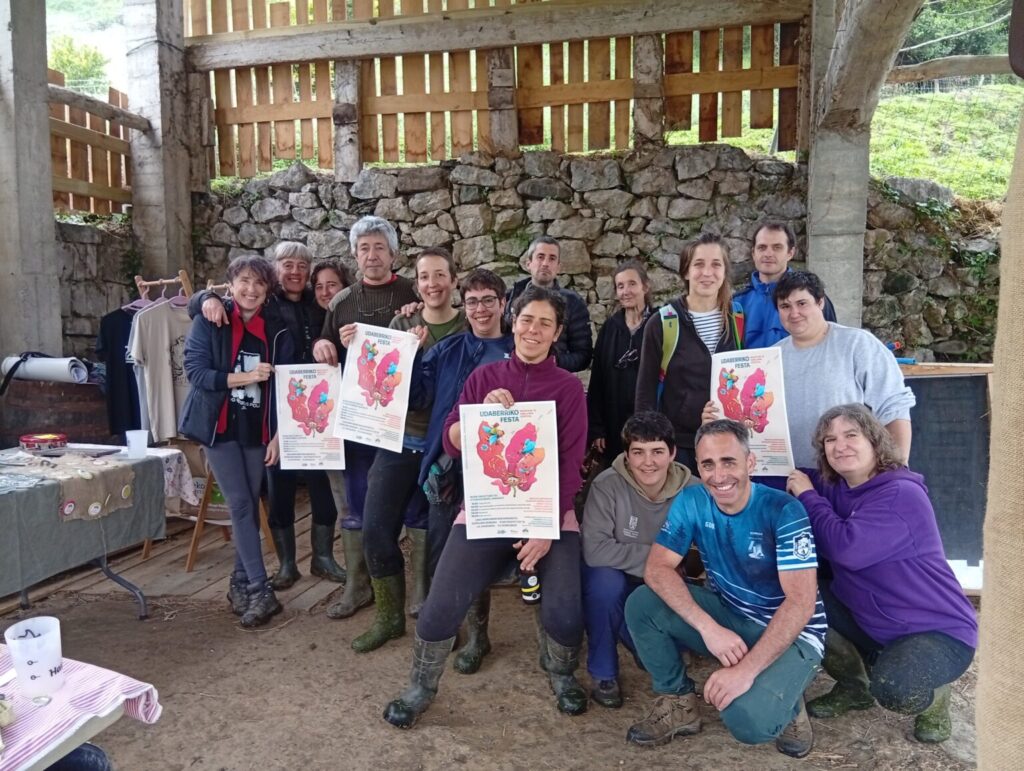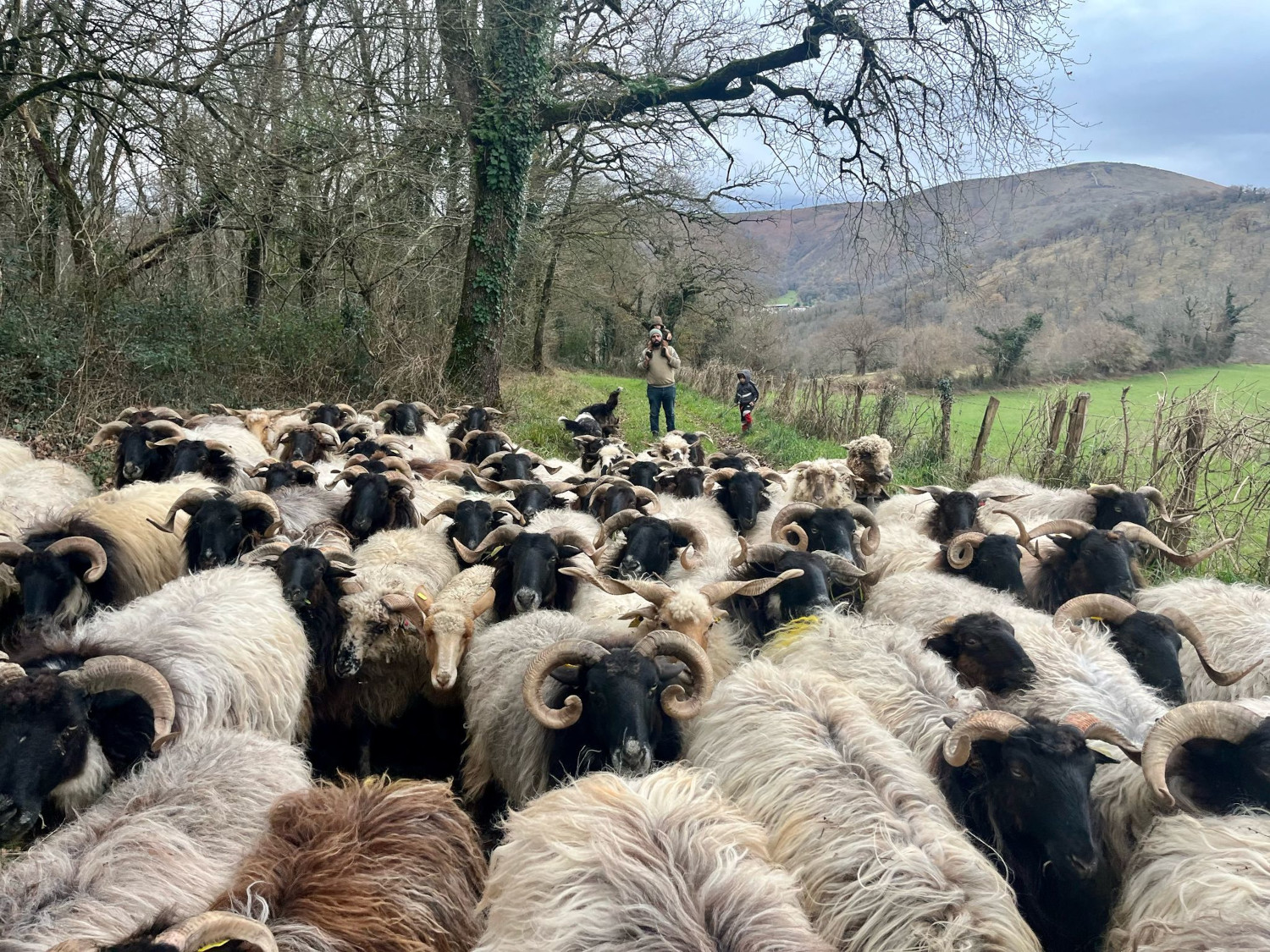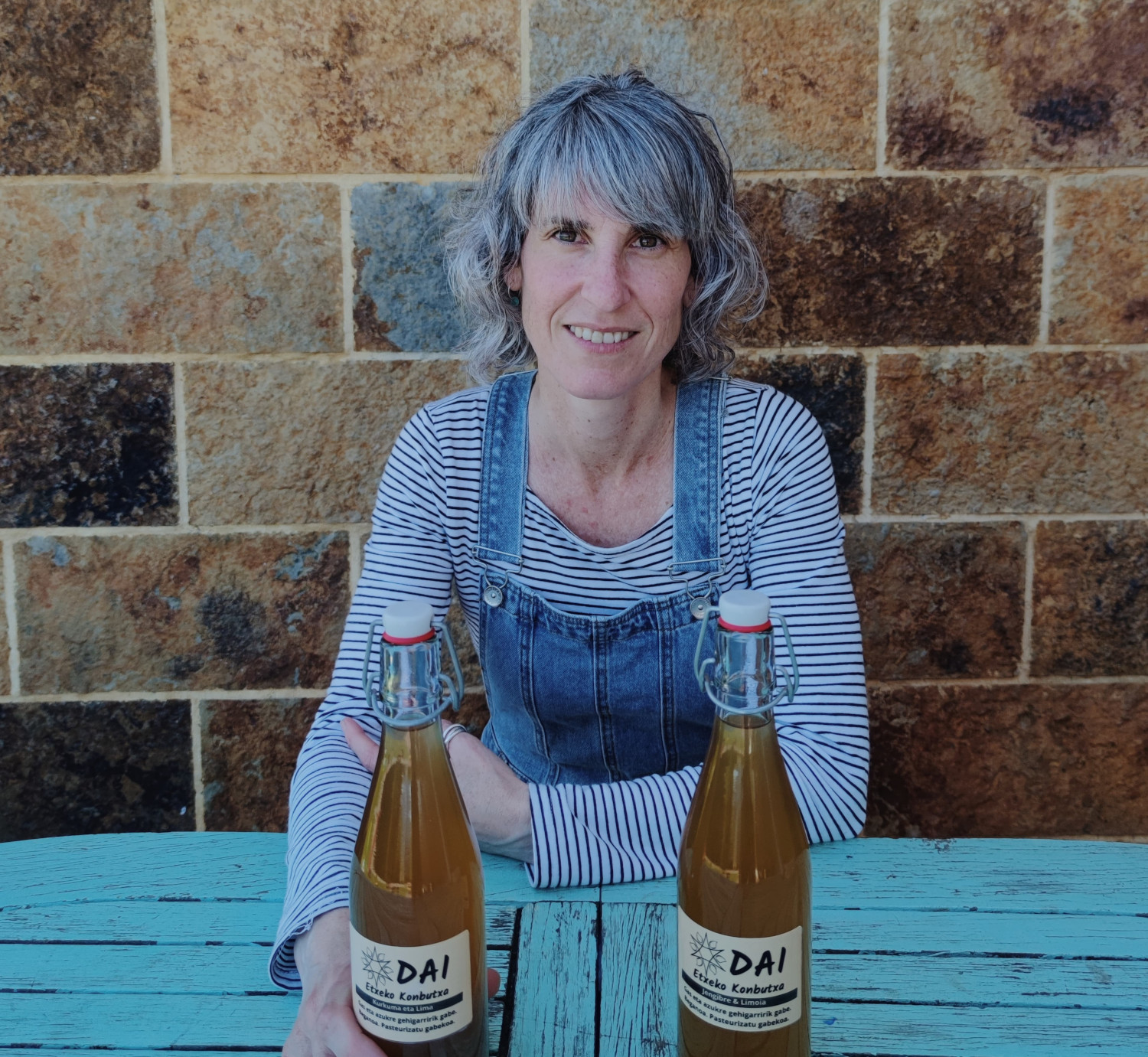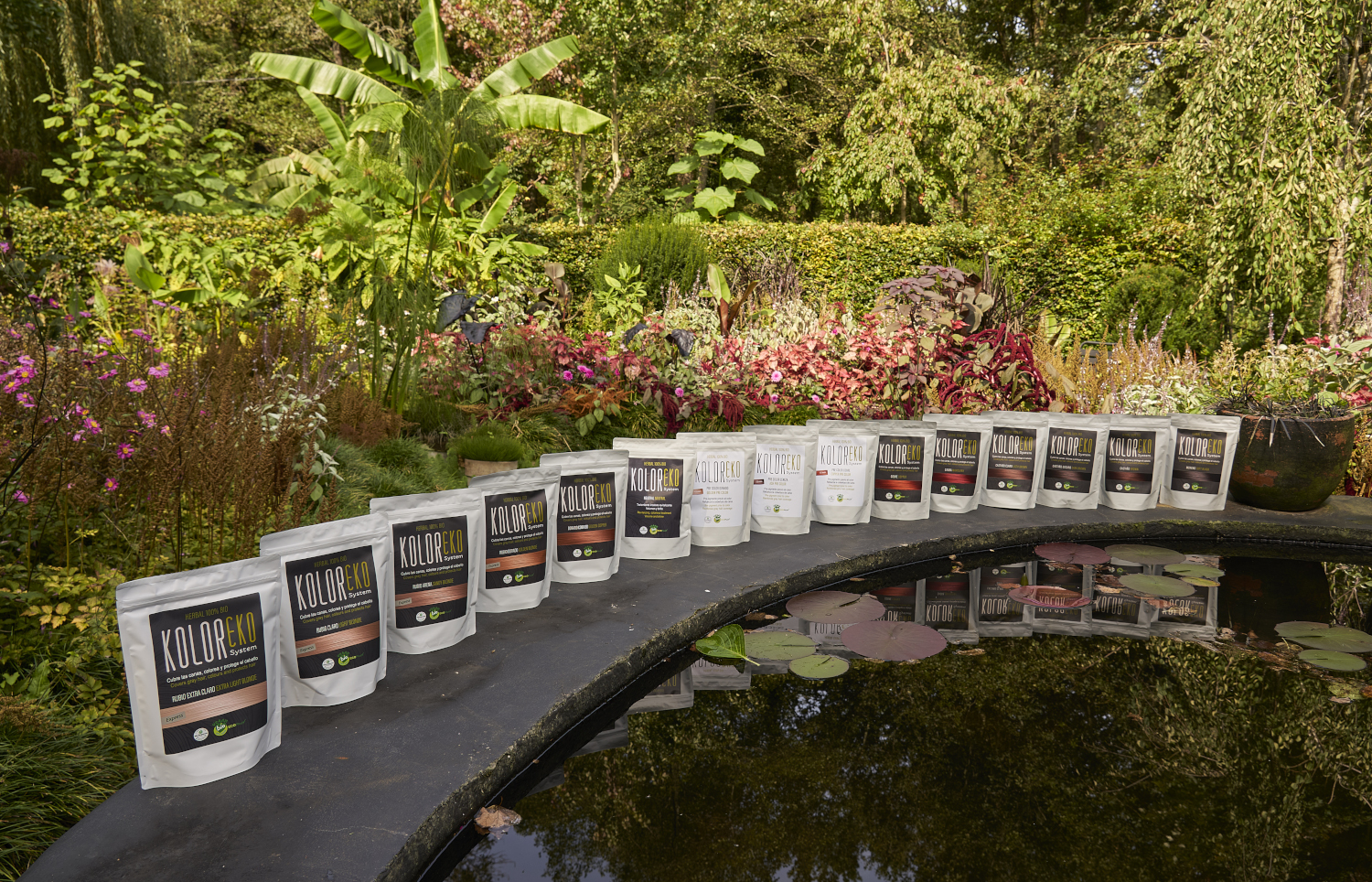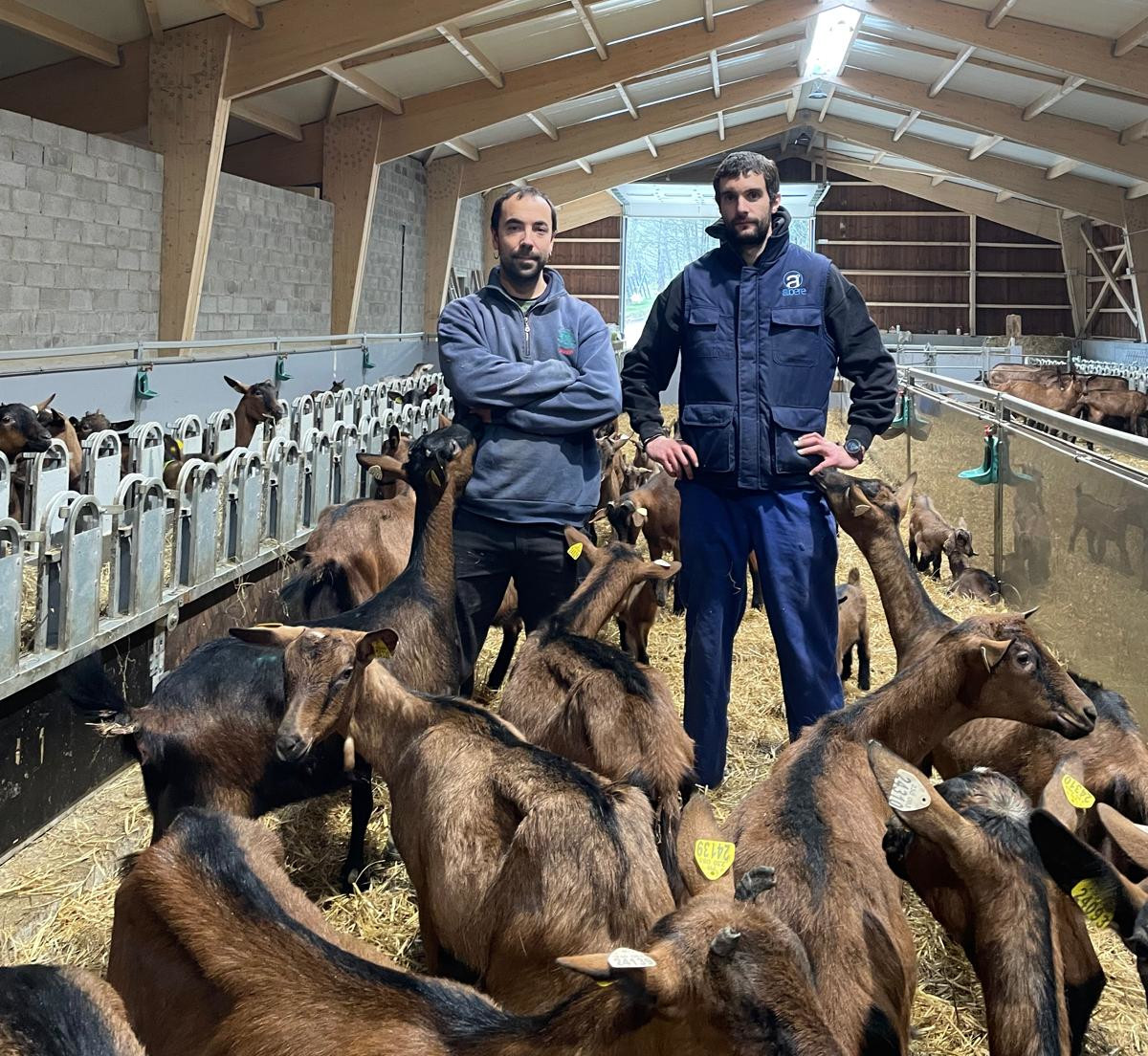Work and life in the Pirenaico Arce: shop and near consumption project
- In the town of Urdirotz, in the Navarre Pyrenees, in Artzibar, a new project has opened its doors on 24 February. Txabi Bados Ruiz and Rita Perandrés Martínez call "Feria" the small store they have opened under their houses. The new project is one of the branches of the microoperative Mercadoop. “This name is acronym for the Cooperatives of Services and Trades of the Arce Valley and we have put it in place with the intention of living and working in Artzibar,” explains Perandrés. From food sovereignty, organic producers and products in the region are offered.

Azoka was born two years ago with the objective of offering a series of services in a valley with many small towns and a total population of 300 inhabitants, but since its inception, food sovereignty and close consumption have been one of the most important pillars of the project. “Before we opened the store, the first year of micro-operation creation, we had the home distribution service in place,” he explains. Each week they passed a tender sheet to the clients, the members of the cooperative made the distribution once a week after the request. “The project didn’t work entirely because enough houses did not join the initiative.”
But taking advantage of the purchase of the Urdirotz house this year, the store has been conditioned and placed at the bottom of the building. “It’s different to have a physical place: people can come here to buy, you don’t have to order five days earlier, you can see the products directly…” And it's that one of the problems of the people in the valley is that to make any small purchase, they have to take the car and do more than 15 minutes.
Local, artisans and organic products
In the criteria of the products they sell in the store, the first screening is the closeness: “Because we want to work in the same place where we live, we want to give that opportunity to the artisans and producers of the area”. It is also important that products be artisans and organic: “There are things that cannot be found in the region, such as citrus fruits. In this case, we contribute ecologically and always through cooperatives or projects that we consider of interest”. As far as possible, they also try to obtain bulk products.
Microoperations members pay 10% less purchase, but the store is open to anyone. Fresh vegetables, yogurt and dairy, bread, meat, cleaning products… Customers can complete the full shopping cart weekly at the Azoka Denda. In addition to the store offering, Azoka offers other services: “We hire tools and working machinery, as well as music education service. We are gradually expanding.”
Duela lau urte abiatu zuten Azpeitian Enkarguk proiektua, Udalaren, Urkome Landa Garapen Elkartearen eta Azpeitiako eta Gipuzkoako merkatari txikien elkarteen artean. “Orain proiektua bigarren fasera eraman dugu, eta Azkoitian sortu dugu antzeko egitasmoa, bere izenarekin:... [+]
Donostiako Amara auzoko Izko ileapaindegi ekologikoak 40 urte bete berri ditu. Familia-enpresa txikia da, eta hasieratik izan zuten sortzaileek ile-apainketan erabiltzen ziren produktuekiko kezka. “Erabiltzaileen azalarentzat oso bortzitzak dira produktu gehienak, baina... [+]
Ubidekoak (Bizkaia) dira Imanol Iturriotz eta Aritz Bengoa gazteak. “Lagunak gara txikitatik, eta beti izan dugu buruan abeltzaintza proiektu bat martxan jartzeko ideia”, azaldu du Iturriotzek. Nekazaritzari lotutako ikasketak izan ez arren, baserri munduarekin eta... [+]
Iruñean bizi ziren Iñaki Zoko Lamarka eta Andoni Arizkuren Eseberri gazteak, baina familiaren herriarekin, Otsagabiarekin, lotura estua zuten biek betidanik. “Lehen, asteburuetan eta udan etortzen ginen eta duela urte batzuk bizitzera etorri ginen”, dio... [+]
Gipuzkoako hamaika txokotatik gerturatutako hamarka lagun elkartu ziren otsailaren 23an Amillubiko lehen auzo(p)lanera. Biolur elkarteak bultzatutako proiektu kolektiboa da Amillubi, agroekologian sakontzeko eta Gipuzkoako etorkizuneko elikadura erronkei heltzeko asmoz Zestoako... [+]
Emakume bakoitzaren errelatotik abiatuta, lurrari eta elikadurari buruzko jakituria kolektibizatu eta sukaldeko iruditegia irauli nahi ditu Ziminttere proiektuak, mahai baten bueltan, sukaldean bertan eta elikagaiak eskutan darabiltzaten bitartean.








